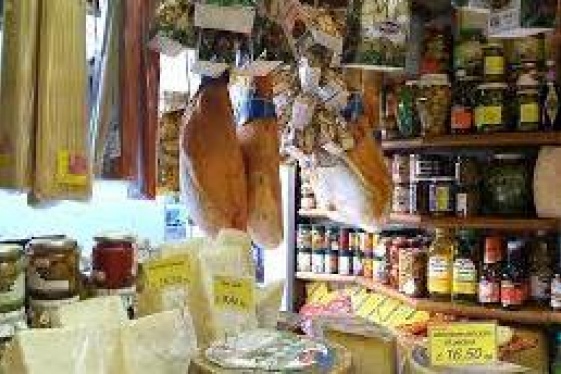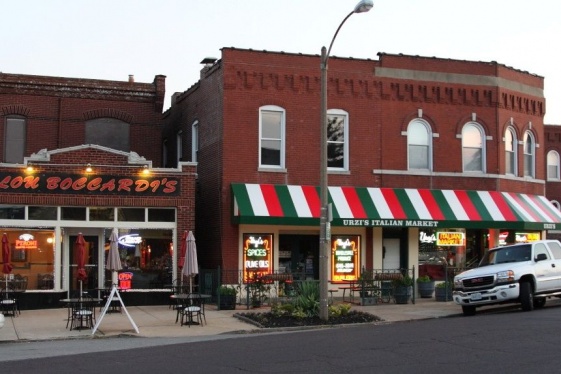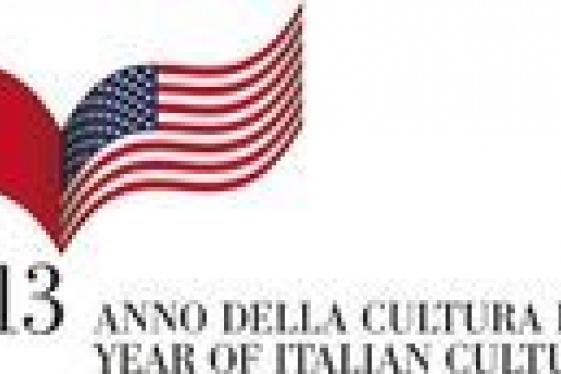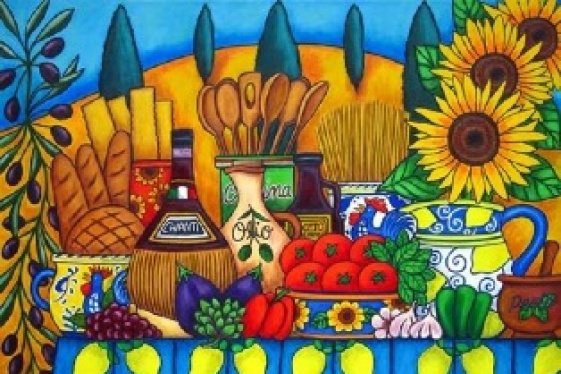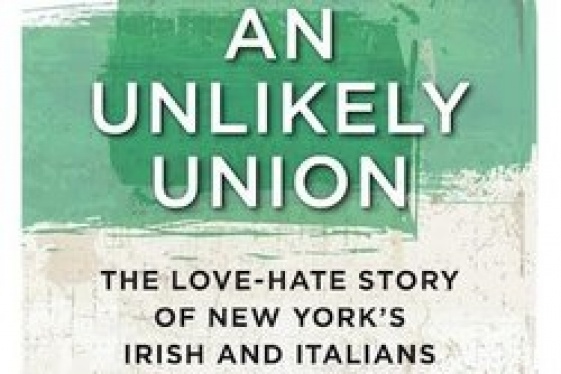
Ileana Disabato (Director of “On the road to Little Lucania”)
“On the road to Little Lucania”: la Basilicata in America

Let's go back to the topic of regional emigration and after Sicily, Abruzzo and Puglia, this time we talk about the emigration from Lucania (Basilicata) to America.
We do this thanks to a documentary produced and realized, with the contribution of the Basilicata Region, by a young talented Lucanian, Ileana Disabato, whom we thank and to whom we give our warm welcome on We the Italians.
Ileana, you are the author of the documentary "On the road to Little Lucania". Tell us about your project
The idea of the documentary "On the road to Little Lucania" comes from the desire to tell the stories of emigration from my land: Basilicata. I define myself as a girl very attached to her origins and the theme of emigration is very dear to me. My youngest years have always been accompanied by stories of emigration. I heard them at the table, during the holidays, when my grandparents told me about that long journey by ship to reach the "foreign land". They told me about their first impressions, the difficulties and the three different works that my grandfather did.
I grew up asking my grandmother questions about how she had communicated with people in Canada, while she was used to speaking her own dialect. Then it was a trip to the United States, at the age of just six, that left an indelible mark on me. I am convinced, that was when and where it was signed that there would be room in my life for stories of emigration. It was on Ellis Island that I hardly wrote, on a blank page register, the date of December 2000 and that my great-grandfather had landed there. In addition, my studies in foreign languages have allowed me to deepen my knowledge of the theme of emigration by completing my three-year degree thesis entitled “Italiani d’America: il rapporto interculturale con il Nuovo Mondo e la nuova lingua”. (Italians of America: the intercultural relationship with the New World and the New Language).
"On the road to Little Lucania" thus stems from this awareness. It is a docu-film that manages to convey authentic emotions of Lucanians of various generations, who emigrated to the United States from Basilicata. My role is that of a young girl who decides to immerse herself in those Lucanian microcosms present in America and tell of emigration in bright and simple tones. A young look and a genuine language bring out positive feelings, giving, moreover, to this topic a different appeal to younger people. Every single word of this work is nourished by feelings, memories and that light in their eyes that I perceive when someone from my "family of America" reaches us to oxygenate and yearn, even if for a while, all our Lucanian world.
We are curious to know about the characters in the documentary...
Eight different stories of emigration, but united by the same indissoluble bond with Lucania: from the young Arturo Petrozza, who became manager for Pepsi in Manhattan, to that of the tailor of divas, Michele Angelo Musillo, who emigrated to the United States in 1920. Stories of the past that intertwine with those of today, demonstrating how emigration is a highly topical issue, albeit to be placed in a context where we, young people, feel that we are citizens of the world.
The interview given by the President of the Statue of Liberty-Ellis Island Foundation, Stephen Briganti, also the son of Lucanian emigrants, was very interesting. From his words emerged not only aspects concerning the arrival of emigrants on Ellis Island and the construction of the museum, but also a special link with Basilicata, the land of his grandparents. A journey which also goes through the stories of the second generation Lucanians who dream of returning to the country of origin of their parents, places where you can breathe tranquility, eat good food and feel the warmth of the people ... perfect places to build a small refuge in which to spend a few months a year. There are many other exciting stories I could tell you about, but I wouldn't like to reveal the whole docu-film...
Are there data that help us understand how many Italian Americans are of Lucanian origin, and if there are places in America that host a significant concentration of them?
The Italians who emigrated from 1861 to 1961 are 26 million, however, there are no specific data indicating how many are precisely the Lucanians, because many departures were made illegally. There is certainly another Basilicata in the United States.
At the time of the arrivals, the concentration of Italian immigrants in certain districts was not accidental; the accommodation was almost always located in districts where there were other Italian immigrants and close to the main places of employment. Hence the birth of Little Italies. To animate those streets were villagers and comrades, always ready to support each other, a single great soul that fed on festivals, processions, good food and good music in order to soothe the nostalgia for home. A community of solidarity, in which mutual aid was fundamental and very strong.
Places that today host a significant concentration are certainly New Jersey and the State of New York. There are also many Italian Americans of Lucanian origin who have kept up the name of Basilicata and continue to do so. The encounter between two different cultures is never easy, it is almost always an encounter/clash: there are stereotypes and discrimination. Over the years, Italians have been able to demonstrate how their presence was actually an added value for the American community. The spirit of adaptation, initiative, brotherhood that has always distinguished the Lucanians have made it possible for our community to realize the American dream for real, a dream made of sacrifices, successes and satisfaction.
For example, I’m thinking about Anthony Cilibrizzi, who emigrated from the province of Potenza in 1910 and became mayor of Cleveland and then the first Italian to hold the role of minister during the term of J.F.Kennedy. Or Leonard Covello, an important pedagogist who fought for the integration of the children of Italian emigrants by promoting the teaching of Italian in American schools.
Up to Bill de Blasio mayor of New York and Stephen Briganti, president of the foundation of Ellis Island and Statue of Liberty, who just last month received us in his office to sign an important agreement with the coordinator of the Museo dell’Emigrazione Lucana, Luigi Scaglione.
Please tell us at least one anecdote of which you have become aware during your research activity
I can mention the one told me by the nice Sario Petrozza, who emigrated to New Jersey in the 50s. It was a winter evening when Sario was leaving from Montescaglioso, in the province of Matera, for the port of Naples, from which he would then board for the United States. Despite the cold, the very young Sario didn't have a coat with him, so one of his cousins, without hesitation, took his off and gave it to him as a gift. A gesture that Sario told me with emotion and the humility of those who left without having anything, building a better life in the land of great opportunities, without ever forgetting their roots. A man of good heart, who makes us smile for his likeability, but at the same time reflect on the living conditions of the South of those years.
Are there associations in America that specifically represent someone or a place in Basilicata?
Yes, there are numerous associations of Lucanians scattered throughout the United States, and a Federation present in New York. In particular, I had the opportunity to get in touch with the Mutual Aid Society - San Rocco Montescaglioso of Paterson, New Jersey, part of which is recounted in the docu-film "On the road to Little Lucania". A true Lucanian microcosm and a reference point for the mountain community, a place where Basilicata's values and traditions are kept alive. A historical society, founded in 1928, whose 90th anniversary is celebrated this year.
So, We the Italians wishes them all the best! What are the relations between the Lucanians living in Basilicata and those living in America today?
I would say that remoteness does make this link even stronger. I can see that directly with my family which lives in the United States. With them it is as if their sense of belonging to this land has tripled, so much so that they can still smell the scent of bread or the sound of the city band on holidays. I must say that it is thanks to them that I was able to really understand the value of my roots and my love for this land, which on the one hand forced them to emigrate, but on the other constantly reminds them of themselves as a mother does with her children.
When they return to Basilicata in the summer months you can almost touch their happiness, read it in the eyes, in the serenity of the way of speaking, in the smile. They know they have a second home in Basilicata, a safe haven where the value of the family is rooted in principles such as respect, hospitality and generosity.
One of the Lucanian things that the protagonists of your documentary miss the most is the food of your places...
Food is life, family, sharing and even a single perfume can recall memories of one's past childhood or happy moments spent in the land of origin. This is what happens to the Lucanians of America. In the United States you can find really everything, but perhaps the unique flavors of extra virgin olive oil, cold cuts or cheeses typical of Basilicata make everything a little more nostalgic. But that's why there are relatives visiting from Italy, whose suitcases very often hide Lucanian delicacies that are worth a thousand emotions.
In addition, I have found a great desire to learn the art of Lucanian cuisine, especially in the new generations, increasingly curious and eager to regain possession of their roots. The return trips are becoming more frequent year after year and in this regard comes to mind the experience of my cousin Tyler, whose grandparents emigrated from Montescaglioso in the 50s. A few years ago he decided to leave for Italy, live in the places that have seen his grandparents grow and know his Lucana family. Here he found welcome, human warmth, so much authenticity and authentic flavors; intrinsic values of our people that have rekindled in him the pride of being Lucanian, as well as the desire to return and make known this wonderful land.
Do you have any other projects for the future?
As for the projects of this year, it was very interesting to video interview Ron Galella, the king of the American paparazzi. His most famous shot is without a doubt "Windblown Jackie", which portrays a Jacqueline Kennedy caught by surprise, in a completely natural pose with her hair that, upset by the wind, caresses her face. Stories of an incredible life, spent chasing the stars and capturing their true essence, beauty and spontaneity. Sophia Loren, Frank Sinatra, Marlon Brando, Catherine Deneuve, Liz Taylor, John Lennon, David Bowie: these are just some of the celebrities he photographed.
A very genuine man who always remembers his origins in Lucania with great affection. In the interview he tells me about some of his shots, but also the moment when his father, very young, left Muro Lucano, in the province of Potenza, looking for a job and when he himself returned, discovering with surprise a unique and welcoming land. The interview will soon be available online.
You may be interested
-
‘Fuggedaboudit’ the motto of new Italian del...
By Kimberly Sutton Love is what brought Tony Nicoletta to Texas from New York.The transpl...
-
“The Hill” St. Louis’ Little Italy
When the fire hydrants begin to look like Italian flags with green, red and white stripes,...
-
1st Annual Little Italy Cannoli Tournament
Little Italy San Jose will be hosting a single elimination Cannoli tournament to coincide...
-
A Week in Emilia Romagna: An Italian Atmosp...
The Wine Consortium of Romagna, together with Consulate General of Italy in Boston, the Ho...
-
A wreath for Columbus and three crowns for t...
The Columbus Day Committee of Atlantic City along with the Bonnie Blue Foundation annually...
-
An Italian American Feast For Family Reunion...
Hey, come over here, kid, learn something. ... You see, you start out with a little bit of...
-
An Unlikely Union: The love-hate story of Ne...
Award-winning author and Brooklynite Paul Moses is back with a historic yet dazzling sto...
-
Buon Appetito! Unique Italian dining at Ragú...
There's something to be said for having your food prepared tableside. Guacamole tastes fre...




















